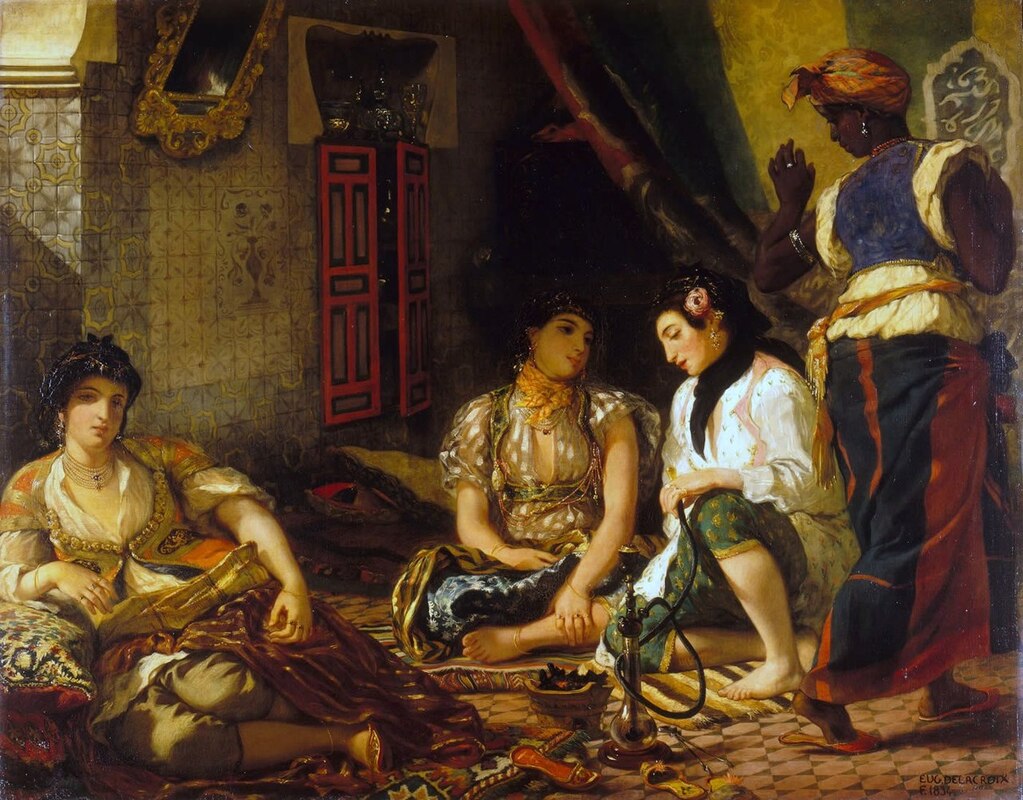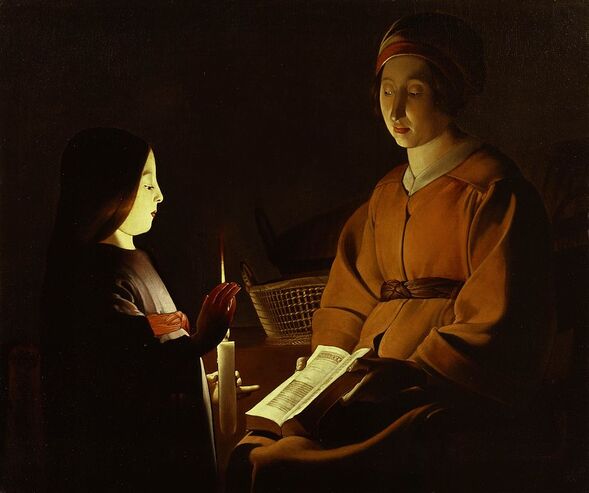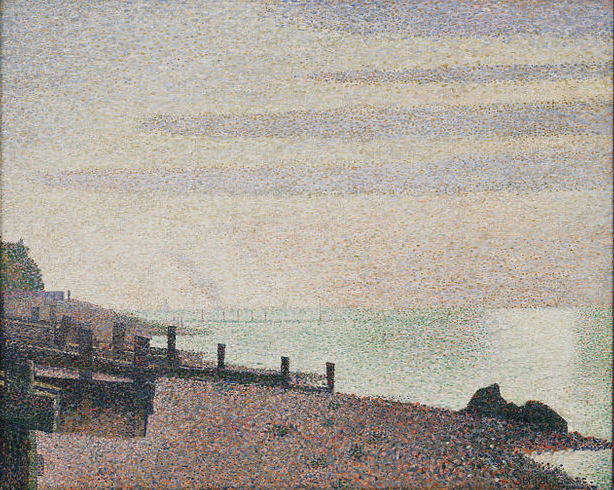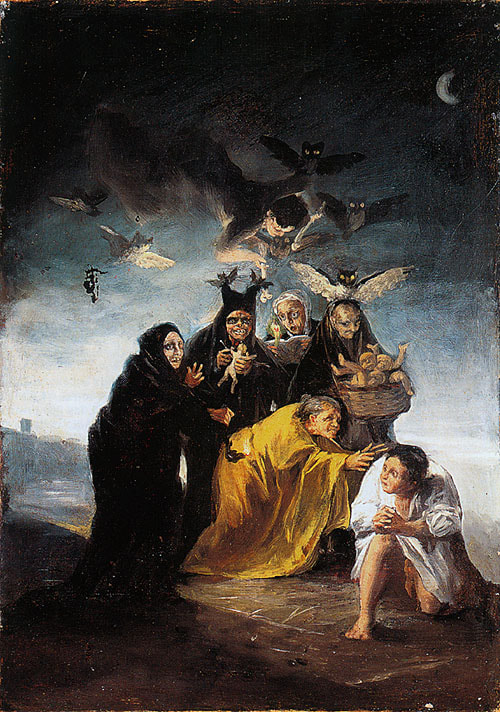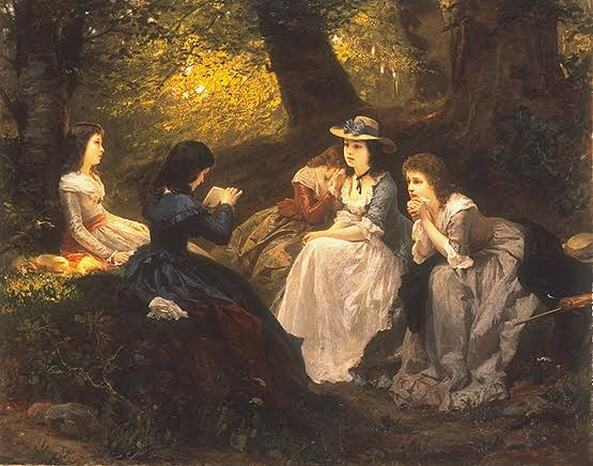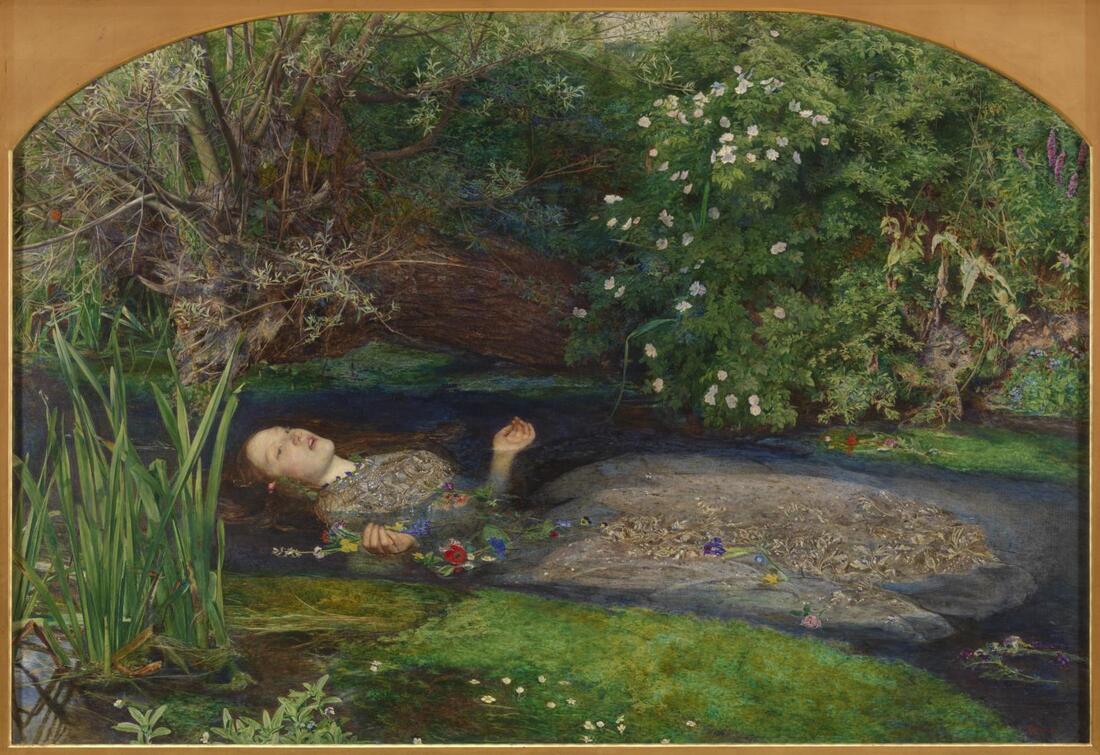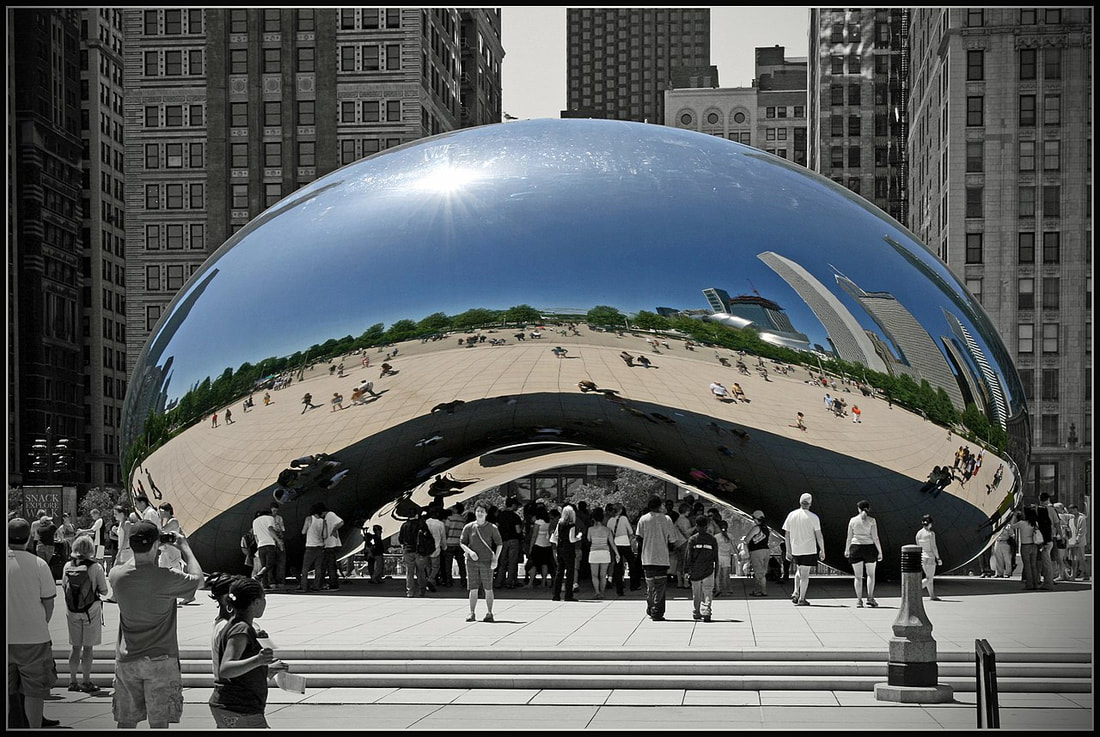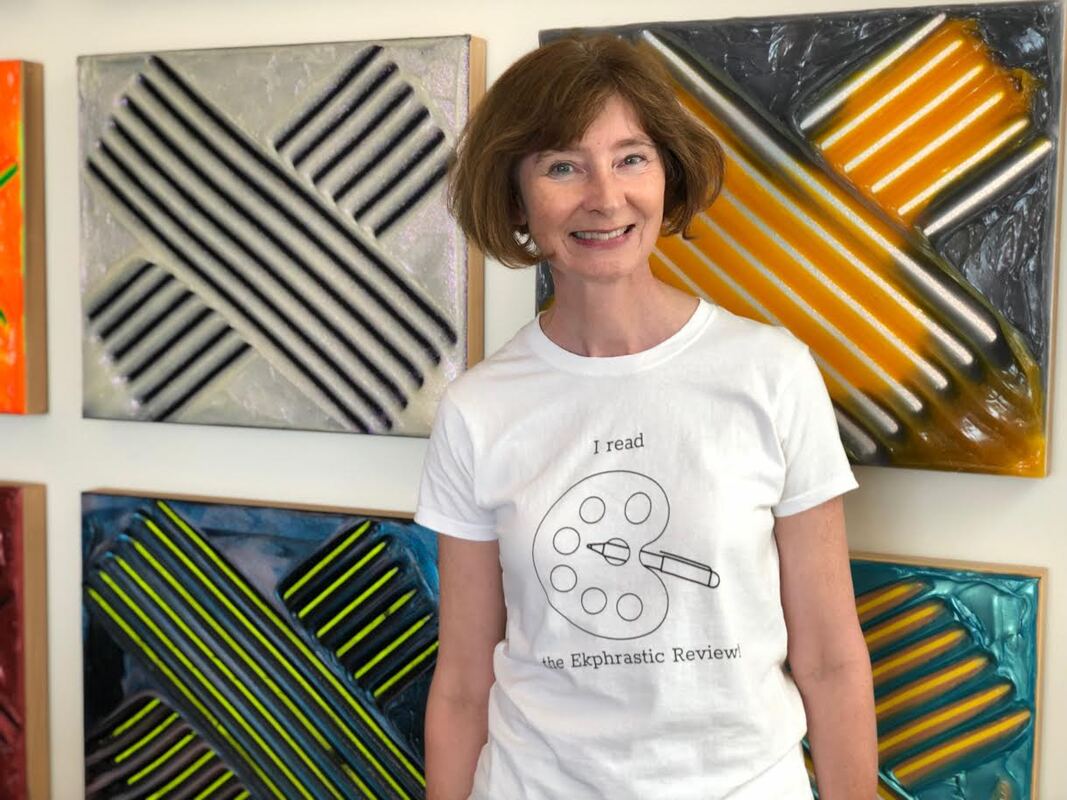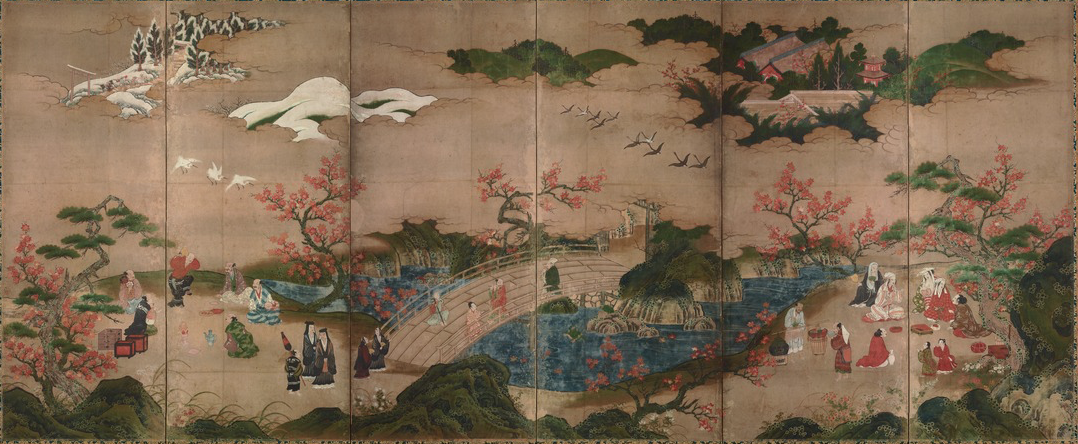|
In Which I Consider Myself A Possible Woman of Algiers Delacroix, like me, is charmed but deluded, fascinated by their harem allure-- luscious flesh, bejeweled bodices, vibrant costumes, figs. Entering through swinging saloon doors, I pose for them. My red bloomers are brighter than theirs, my cheeks burn violet energy. They do not look my way, I am disturbing the languor, familiar stupor. Leaning on thick rugs, bolstered pillows, these plump doyennes are adorned with gold necklaces that sparkle against nude chests, coyly covered by see- through muslin blouses. Turkish turned-up sandals, thrown to the side, reveal meaty feet, pudgy toes. At times, our ladies shift positions to ease a hip or elbow—discomfort does not suit them. Bored with the hookah, they compare the men they bedded last night: a corpulent prince with lacquered hair; sanctimonious merchant, smelling of musk; odoriferous suitor, stale wine, spunk. Spiritless, they wait uncounted hours, tomorrow night will be a repeat. Blue-black Algerian servant, Samia, turns away from them, she’s heard it all before. The mirror on the tiled wall above them tilts forward, she has not bothered to straighten it. She stops abruptly when she sees me. Am I a new consort? She determines not, we are kindred spirits she and I, different kinds of gems. We recognize this luxuriant space as dark, light shines through a depressed window but to no end. It doesn’t go anywhere, only opens to the kitchen where Samia is headed. I believe it leads to Exodus, we could run fast, holding hands to escape this confinement. As I attempt to find my way across the circle of ladies, a putrid smell rises-- moths in the drapes, cockroaches in the corner, truth exhaling from the rotten flesh of women under those bloomers. Dressed-up dolls dulled by men who tell them they are well-taken care of, they don’t realize their pearl anklets, endless hashish, servants-in-waiting keep them prisoners for life. I pick my way through an airless world across plush carpets to follow brave Samia. At least, Delacroix had foresight to render her with fleet feet and shoes on. Lee Woodman Lee Woodman’s essays and poems have been published in Tiferet Journal, Zócalo Public Square, Grey Sparrow Press, The Ekphrastic Review, vox poetica, The New Guard Review, and The Concord Monitor. A Pushcart nominee, Lee is also a longtime artist and media producer, whose radio and film awards include five CINEs, two NY International Film Blue Ribbons, and three Gracies from American Women in Radio and Television. She was awarded an Individual Poetry Fellowship from the DC Commission on the Arts and Humanities for FY 2019. Her poetry collection, Homescapes, will be published in May 2020 by Finishing Line Press. www.poetleewoodman.com
1 Comment
Homeschooled In La Tour’s Education of the Virgin, Saint Anne and her daughter Mary are at peace in chiaroscuro candleglow. Anne tilts the print up at just the right angle for Mary to read. At ease with one another, the mother waits, while the girl bends the light to the book, enchanted by the words. I’m at the kitchen table with my mother, a small, shaded lamp illuminating our book. She’s helping me to read, not the Bible, but the story of Rowdy, the curious colt who escapes from her corral and runs up a little hill, down a little hill, up a big hill, down a big hill, until her mother brings her home. I memorized Rowdy and loved reciting with my mother the colt’s rhythmic rolling up those hills, then down them, up, then down again. If I could paint, I’d fix that time at my own kitchen table – the light, the story, the book between us, my mother’s devotion. Ann Taylor Ann Taylor is a Professor of English at Salem State University in Salem, Mass. where she teaches both literature and writing courses. She has written two books on college composition, academic and free-lance essays, and a collection of personal essays. Watching Birds: Reflections on the Wing. Her first poetry book, The River Within, won first prize in the 2011 Cathlamet Poetry competition at Ravenna Press. A chapbook, Bound Each to Each, was published in 2013. Heloise and Abelard, the Exquisite Truth, is based on the famous twelfth-century story of their lives. George Seurat’s Evening at Honfleur Seurat’s science calls horizontals calm, but down the slope of pilings these turn sad, while sunset breaks white against the solemn black of jagged rock. His light’s a stern, mad landscape divided into tiny balls. This picture’s machine calculates why one pale dot hued against the next recalls a cool gaiety not unlike the sky spread out above a certain slant of shore. Somehow we understand this riddled air and suspend it in thought above Honfleur because Seurat saw something like it there. His art’s divisioned dots define a scheme, conceived as theory, that we must see as dream. Joseph Stanton This poem was first published in Imaginary Museum: Poems on Art, by Joseph Stanton, Time Being Books, 1999. Read The Ekphrastic Review's interview with Joseph Stanton, here. Joseph Stanton is Professor Emeritus of Art History and American Studies at the University of Hawaii at Manoa. He has published six books of poems: Moving Pictures, Things Seen, Imaginary Museum: Poems on Art, A Field Guide to the Wildlife of Suburban Oahu, Cardinal Points, and What the Kite Thinks: A Linked Poem (co-authored with Makoto Ooka, Wing Tek Lum, and Jean Toyama). Over 500 of his poems have appeared previously in The Ekphrastic Review, Poetry, Harvard Review, New Letters, Poetry East, Ekphrasis, Image, Antioch Review, Cortland Review, New York Quarterly, and many others. His awards include the Tony Quagliano International Poetry Award, the Ekphrasis Prize, the James Vaughan Poetry Award, the Ka Palapala Pookela Award for Excellence in Literature, and the Cades Award for Literature. Ekphrastic Writing Challenge: HALLOWEEN THEME WITH FRANCISCO GOYA
Join us for biweekly ekphrastic writing challenges. See why so many writers are hooked on ekphrastic! We feature some of the most accomplished influential poets writing today, and we also welcome emerging or first time writers and those who simply want to experience art in a deeper way or try something creative. The prompt this time is El Conjuro, by Francisco Goya. Deadline is November 1, 2019. The Rules 1. Use this visual art prompt as a springboard for your writing. It can be a poem or short prose (fiction or nonfiction.) You can research the artwork or artist and use your discoveries to fuel your writing, or you can let the image alone provoke your imagination. 2. Write as many poems and stories as you like. Send only your best works or final draft, not everything. Please copy and paste your submission into the body of the email, even if you include an attachment such as Word or PDF. 3. Have fun. 4. USE THIS EMAIL ONLY. Send your work to ekphrasticchallenge@gmail.com. Challenge submissions sent to the other inboxes will most likely be lost as those are read in chronological order of receipt, weeks or longer behind, and are not seen at all by guest editors. They will be discarded. Sorry. 5.Include GOYA WRITING CHALLENGE in the subject line please. 6. Include your name and a brief bio. If you do not include your bio, it will not be included with your work, if accepted. Even if you have already written for The Ekphrastic Review or submitted other works and your bio is "on file" you must include it in your challenge submission. Do not send it after acceptance or later; it will not be added to your poem. Guest editors may not be familiar with your bio or have access to archives. We are sorry about these technicalities, but have found that following up, requesting, adding, and changing later takes too much time and is very confusing. 7. Late submissions will be discarded. Sorry. 8. Deadline is midnight, November 1, 2019. 9. Please do not send revisions, corrections, or changes to your poetry or your biography after the fact. If it's not ready yet, hang on to it until it is. 10. Selected submissions will be published together, with the prompt, one week after the deadline. 11. Rinse and repeat with upcoming ekphrastic writing challenges! The Werther Effect Roaming around the musty stacks at the George Bruce Branch of the New York Public Library – a 12 year-old and artless me, eager though indiscriminate traveler – my only real move being from Children’s Section to Adult – I somehow landed on The Sorrows of Young Werther. Before I even knew what Sturm und Drang was, Goethe tossed me this way, and then that: young Werther hopelessly in love with Charlotte, who is affianced to Albert, whose pistols Werther borrows (so right in an epistolary novel!), as he sets off upon a journey, shoots himself, and then is buried under a linden tree. Poor Charlotte’s grief, of course, immense; perhaps she too will soon find solace under that selfsame tree. Not knowing fully what this all might mean, (having just moved to the Adult Section), I did know it was bad – a puddle of impossible desires. And so I put my head down (not quite in Walheim, but at 125th in Harlem, at the George Bruce Branch), and quietly wept. I always wondered what had caused my yielding, so complete, to the pathos of poor Werther: Was it the tatters of another day spent reeling in that 6th grade maelstrom? Was it the afternoon’s receding light in that already dim library? Or was it just the sudden gush of a pre-adolescent geyser? What? It was only decades later that I came across the curious phenomenon of Werther Fever: 1774, the novel published. . . countless young men dressed in yellow trousers, blue waistcoats, and long black boots – all over Europe, Werther mushroomed. . . drawings, cups, plates, even a perfume – celebrating woe. Too often were their bodies found, the tearful book beside them. Banned in Leipzig, banned in Italy, banned in Denmark; the clothes, the book – contagious. Reportedly two thousand young men taken by his sorrows: the Werther Effect. Then traveling further, I alighted on a Wilhelm Amberg painting, from 1870. Five young girls sitting in a tawny forest. One, in a long dark dress, reads to the others, and on the rock behind her rests a handkerchief. A second girl weeps quietly on a companion’s shoulder. Another, rapt and sorrowful . . . Listening, they wear a look of wondering sadness, a look the newly blossomed wear. . . . . . . . . . . A golden light seeps through the trees; late afternoon – a turning time. The painting titled “Reading from Goethe’s Werther.” The scene a frame in which to set my own tears shed for Werther’s troubles – now mirrored here, quintuply-mirrored, in my melancholy doubles. No longer I, just one disquieted young reader, but rediscovered finally unto myself – collected – part of a universal chorus now of grievers! Helen Bournas-Ney Helen Bournas-Ney was born on the island of Ikaria, Greece, and grew up in NYC. She served as the Assistant Director of the GED Center at NYU and as the Director of the Learning Center at SUNY Farmingdale, and also taught a number of writing courses. She received the Anaïs Nin Award for her work on Rimbaud and George Seferis. Her work has appeared in Plume, the Cumberland Poetry Review, the New Hampshire College Journal, and the 2019 anthology Plume Poetry 7. Ophelia No one else had ever told her that. Only the shining wasp with a voice clean as a spinning needle-- how water would hold her closer than any body. Never betray her. It would polish her bones like fever. This is why she pushed her way through cattails which sprang like a crown of thorns along the riverbed, her red slippers going burgundy in the bloodwarm, tidal mud. The water’s green meniscus wavered in the swell of her advance. Abandoned, her bouquet spread across the surface like frail arms opening toward the perfect cerulean sky. Her pale braids unspooled like scrims of light. The spoiled lace of her gown, yellowed with pollen and sun, tangled in a willow branch torn free in the past night’s storm, and for a single breathless moment held her in the shadow of that ancient tree while, just above her watery eyes, the black wasp hung, unfurling paper from its mouth like a delicate scroll upon which nothing was written. Or else it was something unbearable as grief. Frank Paino This poem previously appeared in The Journal and Out of Eden. Frank Paino was born in Cleveland, Ohio and earned an MFA from Vermont College. His poems have appeared in a variety of literary publications, including: Crab Orchard Review, Catamaran, North American Review, World Literature Today, The Briar Cliff Review, Lake Effect and the anthology, The Face of Poetry. His third book, Obscura, is forthcoming from Orison Books in 2020. Frank’s first two volumes of poetry were published by Cleveland State University Press: The Rapture of the Matter (1991) and Out of Eden (1997). His awards include a Pushcart Prize, The Cleveland Arts Prize in Literature, and a 2016 Individual Excellence Award from the Ohio Arts Council. Cloud Gate Millennium Park, Chicago Silver archway, upturned u. Watch the specks of colour as you walk toward it. One of them is you. Seek the hue of your t-shirt, a splash of handbag. There you are, high in a corner, near sky. And though close now, you’re small as though viewed through the narrow end of field glasses. Come underneath. Crane your neck to see a face you’ve known since birth peering down, shining and safe like a waking dream of your afterlife. Stroll until nightfall. Bowed skyline lit and reflected, the Bean glitters like Lake Michigan in the dark. Only here, you can touch the cool surface with no risk of falling in. Ona Gritz Ona Gritz's poetry collection Geode was a finalist for the 2013 Main Street Rag Poetry Book Award. Her poems have appeared in Ploughshares, Catamaran Literary Reader, Bellevue Literary Review, Seneca Review, and elsewhere. Ona is also an essayist, memoirist and children's author. Reader and contributor Lindsay Shen proudly wears her heart on her sleeve!
Read her poetry here. Check out the t-shirts, mugs, and other merchandise here. Support The Ekphrastic Review! Pureland Instead of The Golf Channel he slept through, he stands at the foot hills of Mount Takao, arms stretched upwards, and watches white herons and geese announce our arrival to the cherry blossoms, lilies of the valleys, wild cherries, passion- flowers and roses, singing, with silky breaths, their perfume into the breeze; sweet summer eagerness. Instead of chilled beer poured in a frozen glass he drinks hot tea, wisps of steam; warm and pleasant and inviting, curl the outline of his mustache and open him up the way a fighting conch stretches out of its shell to dance in the current, loosening his grip once clenched behind his barricade door, exposing his soft pink and orange tenderness. Instead of folded hands and knelt knees behind a pew, he dances in a circle, kicking around mud, under visions of the Pure Land breaking through the clouds beside the sun’s ascension in the East dissolving the morning’s dew and exposing permanent meadows softened with running rivers teaching dharmas, while he invents games for the gathered listeners like a laughing Buddha, like a dad. Tate Lewis Tate Lewis recently graduated from Illinois Wesleyan University with a double major in English-writing and Religion. This is his third publication ever but his second from the manuscript he is currently compiling. His upcoming book of poetry’s determination is to not only focus the reader’s eye on the ugliness of a futile struggle against death but also his discoveries of his father within and apart from fatherhood. His work has also been featured in Better than Starbucks and The American Journal of Poetry. A Darkey Hymn “All I Want” It hardly had to do with her Shadow Night hymn Hemmed-up In the grief of her song Dark throat ripped Like the hem From America’s gown Stitched & Stitched & Stitched in history’s skin Toss me the blade I want to split seams (un)hem This/our brown child Slip me the shank To slit this Night Lolita Stewart-White Lolita Stewart-White is a poet who lives and works in Miami. Her work has appeared in the Iowa Review, Rattle, Callaloo and Kweli. She is a Cave Canem fellow and the winner of the Paris American Readers Series. |
The Ekphrastic Review
COOKIES/PRIVACY
This site uses cookies to deliver your best navigation experience this time and next. Continuing here means you consent to cookies. Thank you. Join us on Facebook:
Tickled Pink Contest
April 2024
|
